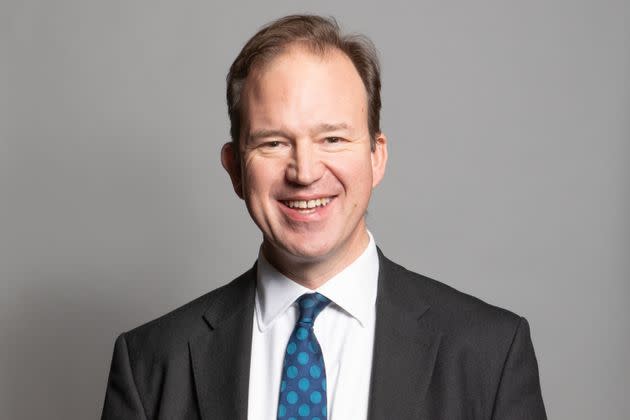Even Margaret Thatcher Would Have Brought In A Windfall Tax, Tory MP Says

Jesse Norman said introducing a windfall tax would be "ethically principled and pragmatic". (Photo: Richard Townshend/UK Parliament)
Conservative calls for a windfall tax are growing louder after a former Treasury minister claimed that even Margaret Thatcher would have introduced one if faced with the current cost of living crisis.
Jesse Norman, who served as financial secretary to the Treasury from 2019 until last year, said “few would embrace the idea in normal times” but that the arguments against a windfall tax were “at present very weak”.
The government is under pressure to help families who are struggling with the soaring price of fuel and energy bills, in part caused Russia’s invasion of Ukraine.
Education secretary Nadhim Zahawi said on Sunday that the Cabinet was considering “all the options” to combat the cost-of-living crisis, including a temporary levy on firms that have benefited from the boom in oil and gas prices.
Rishi Sunak, the chancellor, is understood to be warming to the idea but he faces opposition from ministers including international trade secretary Anne-Marie Trevelyan, Northern Ireland secretary Brandon Lewis, health secretary Sajid Javid and Brexit opportunities minister Jacob Rees-Mogg.
In a Twitter thread, Norman said the move would not be without precedent, citing the bank levy imposed by former chancellor George Osborne in the aftermath of the 2008 financial crisis.
The MP for Hereford and South Hertfordshire also said that former prime minster and free market advocate Thatcher had effectively imposed a windfal tax with one-off levies on banks and oil firms in the early 1980s.
I don’t know the Treasury’s mind regarding a windfall tax on the oil and gas sector. Few would embrace the idea with enthusiasm in normal times. But these are extraordinary times, and the arguments against it at present are very weak. 1/
— Jesse Norman (@Jesse_Norman) May 22, 2022
A windfall tax would not defer investment as some ministers have claimed when arguing against the idea, Norman added.
And he said: “It is also quite wrong to say that a levy or tax of this kind would be unconservative.
“On the contrary, it would be both ethically principled and pragmatic. And it would burden future generations less than incurring more debt.”
He added: “There is no such thing as a perfectly free market, and preserving the benefits of free exchange and open markets requires intelligent flexibility in times of crisis from government.
“This would not breach that norm. Indeed it would reinforce it.
“Finally, for what it is worth, although she rightly would not have liked the idea much, I have no doubt Margaret Thatcher in her pragmatic prime would have levied a limited and temporary tax of this kind.
“Indeed she more or less did, in 1981 and again in 1982.”
Norman’s intervention comes as Michael Lewis, the chief executive of E.ON UK, urged the government to “tax those with the broadest shoulders” as means to curb the energy crisis.
He told BBC One’s Sunday Morning TV show: “Well, for us, the most important thing is that the government intervenes, it’s up to the government to decide how they fund that.
“All I would say is that it’s important that, when they are taxing to address this challenge, that they tax those with the broadest shoulders.”
Lewis said he had seen a “significant number” of people fall into in fuel poverty, defined as when more than 10% of their disposable income is spent on energy.
He said that figure has now risen to 20% and could rise to 40% “if the government doesn’t intervene in some way”.
Asked about the likelihood of a windfall tax coming into force, Zahawi said the Cabinet will “look at all the options”.
However, he warned that imposing a windfall tax could negatively effect elderly people if firms are then forced to reduce or withdraw their dividends.
“We want to see their investment but also remember it’s pensioners who basically get the dividend from these companies, and if they’re going to cut their dividend because they have had a windfall tax, then that’ll make a difference to pensioners,” he told Sky News.
“Investment has to be real, which is what I think Rishi [Sunak] will demand of all these companies and to see a roadmap towards that investment.
“We’re not taking any options off the table.”
Trevelyan also told Times Radio she believed that the government should energy producers to invest their profits in green alternatives rather than imposing the tax.
“As the chancellor said, it’s really important that he’s able to keep everything under review.
“He has set out a very clear position that he wants these energy companies, as they have made unexpectedly higher profits because of these price hikes, that they use that to invest in the clean energies of the future.”
This article originally appeared on HuffPost UK and has been updated.

 Yahoo Movies
Yahoo Movies 
